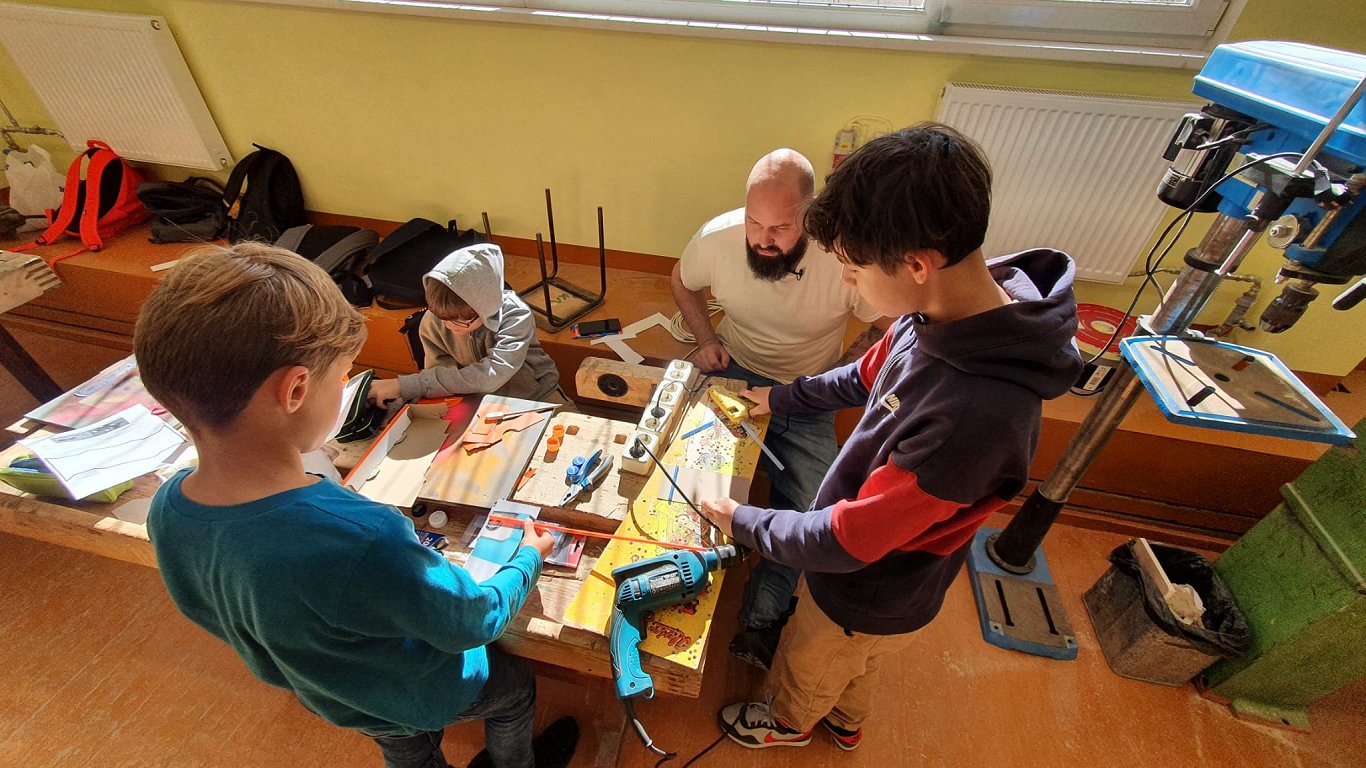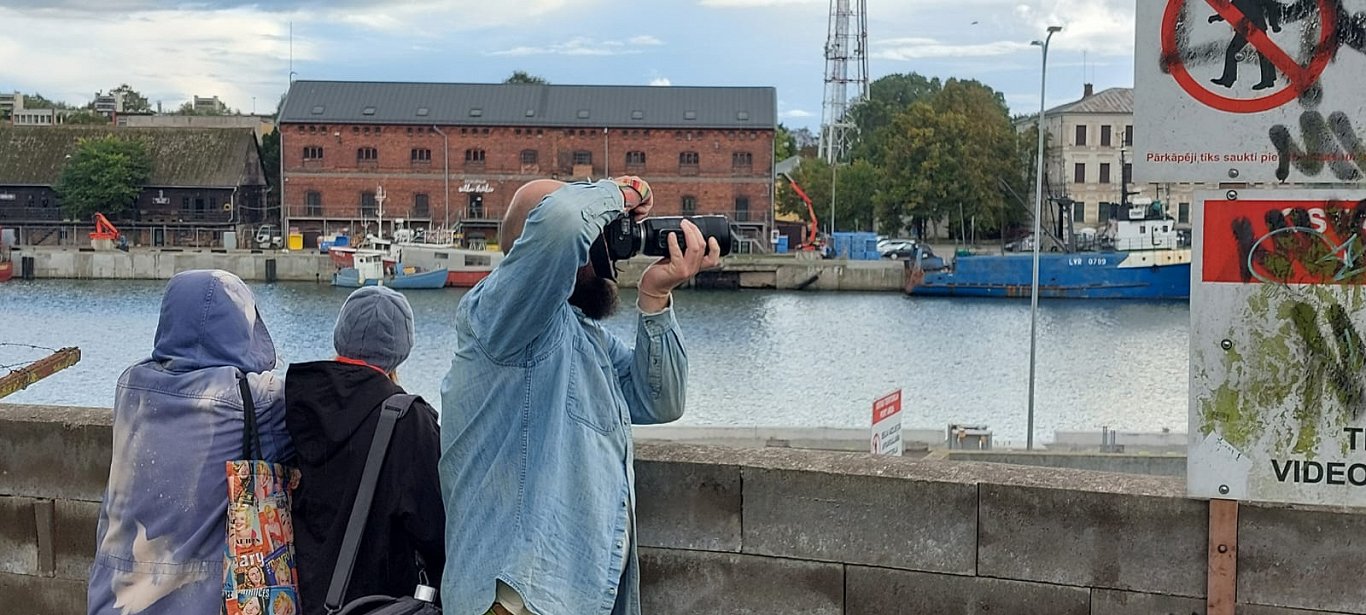Jānis Rudzītis from Liepāja would probably have followed in his father's footsteps and become a fisherman, but it so happened that his father was taken by the sea in his early childhood. Now working as a home economics teacher, he tries to teach the truths of life to his students in addition to vocational training skills.
According to him, being a teacher is the greatest responsibility, because parents entrust him with the most precious thing they have – their children.
Jānis' optimism is infectious – it is such a huge, overflowing love of people and joy for everything, that you involuntarily catch yourself smiling.

We meet with Jānis at his workplace - at the 8th secondary school in Liepāja, where boys and girls learn the joy of using their hands under his guidance in home economics lessons. Perhaps the most accurate description of the relationship between teacher and children is what one boy said – the boy arrived with a broken arm hanging around his neck, which gradually slips out of the protective sling in the heat of work.
When Jānis asks the boy if he is not in pain and if he should take a break from being active, the boy confidently refuses that he will not miss this hour for anything.
Rudzītis turns his head and secretly smiles into his beard with satisfaction - what better assessment of the teacher's work!
Liepāja 8th secondary school is not considered an elite school, says Jānis, but he has never even considered changing his workplace: "This is my school, my teachers are here, I have been working here for around 20 years, and I still like it very much." It turns out that the students often address him by surname alone, because there are still quite a lot of people named Jānis. And it has happened that after nine years of working and learning together, a ninth-grader asked: teacher, if I may ask - what is your first name?
Perhaps thanks to or in spite of the trials heaped on him by fate, Rudzītis has managed to keep the backbone of a very realistic and logical point of view under the amazing skin of optimism. He is truly worried and uneasy, for example, about the possible fate of some of Liepāja's grand buildings designed by Baltic German architect Max Bertschy (see LSM's earlier story about Bertschy). Jānis captures these architectural pearls in photographs, at least in this way giving credit to the work of the great master. He says that everyone in Liepāja knows Bertschy's name, but most of them don't really know anything about this father of the city, just as they have no idea that the graves of the Bertschy family are found on the side of the harbor channel.

Rudzītis likes to come here and photograph both the harbor and the cozy fishing boats from a rarely seen angle, and listen to the sounds of jazz flowing over the canal waters from the nearby pub, and simply breathe the wind.
As a good Liepāja citizen, he goes to the sea twice a year - once to swim, the second time - to pick up sea kelp for his small garden.
Without realizing it, the conversations - as in any company - turn to the worrying world situation. Jānis quotes an Indian saying - a person has to be satisfied with what is up to the horizon. A multitude of misfortunes and misfortunes arise in the world because of human insatiability. But there are some truths that stand beyond time and human powers - like the fact that 2 times 2 is 4. Of course, there will be someone who will say that the result will be 3, businessmen will definitely claim that 2 times 2 is 5, but Rudzītis is firmly convinced:
"I'm not afraid, but I'm afraid that the world won't be dark, I believe that good must win. And even if some people think it's boring, 2 times 2 IS 4, and so be it."
When the end bell of the last class has rung, together with Jānis we go through the whole of Liepāja to his home. We are going by bus, because Rudzītis does not have his own car. It's not really necessary, because in Liepāja everything is right around the corner.






















